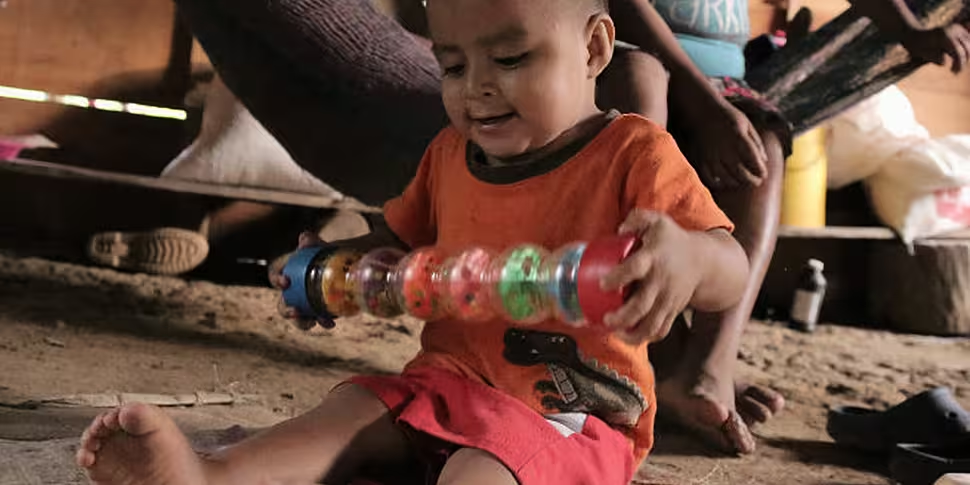Children who play by pretending to be someone else may deal better with challenges later on in life.
That is according to UNICEF, who has published an Early Moments Matter study.
The campaign, supported by the LEGO Foundation, is hoping to to drive increased awareness about the importance of the first 1,000 days of a child’s life - and the impact of early experiences on the developing brain.
The UN agency says in the first years of life, neurons in the human brain form new connections at an "astounding" rate of 700–1,000 per second - a pace never repeated again.
It says these connections are the building blocks of a child’s future.
But if a child is poorly nourished and nurtured, if they are not stimulated properly and protected from violence, their development is seriously affected - sometimes irreversibly.
"A child whose brain does not develop properly may not learn as well or earn as much. Not developing to her full potential hurts both her and society", UNICEF says.
It says the first 1,000 days have a significant effect on a child’s future -and that "we have one chance to get it right."
"The science shows us that biology is not destiny", UNICEF says.
'Imagining alternative worlds'
Lindo de Macedo is professor of psychology at the Pensi Institute in Brazil.
"In the first two years of life, the child has basically two ways to play – and both ways are different and very important”, he says.
"The first one is to play with adults: the need the adult’s action. I mean the adult who talks, signs, laughs and tells stories.
"The second way is also very important, which is when the child plays with objects. The child and the objects, maybe with other children as well.
"And these two ways of playing prepare children for the play after two-years-old, which is the symbolic play", Prof de Macedo adds.
While Dr Alison Gopnik from the University of California says: "It’s a bit of a puzzle about why it is that children who need to learn so much about the real world spend so much of their time off in these kind of crazy, imaginary worlds.
"And the answer seems to be that imagining alternative worlds - imagining being able to think about the world in a way that’s different from the way the world actually is – that’s actually one of the most powerful capacities that we human beings have as adults."
At risk of poor development
It also warns that low and middle-income countries could lose out on 43% of the brain potential of their youngest citizens.
According to a recent series in The Lancet, nearly 250 million children in developing countries are at risk of poor development due to stunting and poverty.
But it says the need for greater investment and action in early childhood development is not limited to low-income countries.
Disadvantaged children living in middle- and high-income countries are also at risk.
UNICEF estimates that millions more children are spending their formative years growing up in unstimulating and unsafe environments, putting their cognitive, social and emotional development at risk.
It is calling for governments to increase investments in early childhood, expand health and social services offered to young children, and strengthen support services for parents and caregivers.









